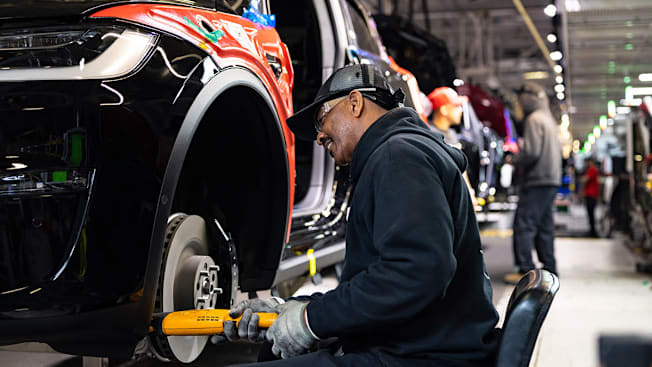How to Save Money Buying a Car, Even If Prices Go Up Due to Tariffs
Cars might get more expensive. Here’s everything you need to know.
Senior Multimedia Content Creator, Autos
 By Jeff S. Bartlett
By Jeff S. BartlettManaging Editor, Autos
Updated April 10, 2025

If you’re buying a new car, you’re likely wondering how uncertainty around tariffs will affect prices. You’re not alone. The entire auto industry is working through the White House’s recent announcements and their impact. It still isn’t clear yet how those decisions will ultimately affect consumers, but tariffs could increase prices for all new cars—and even used cars.
Learn why choosing the right car matters more than ever.
Our Car Testing Goes the Extra Mile
Get exclusive ratings and reliability scores from CR – testing cars since 1936.
JoinIn this article
In this article
- What Are Tariffs?
- What Do Tariffs Mean for Car Prices?
- Will Buying an American-Made Car Save Me Money?
- How Can I Tell Where a Car Was Made?
- Could Leasing Avoid the Impact of Tariffs?
- What About Used Cars?
- Should I Keep the Car I Own?
- What About Selling My Car?
- How Do I Save Money Buying a New Car?
more on car buying
Best American-Made Cars, According to Consumer Reports’ Recent Tests
Best Cars of the Year: 10 Top Picks of 2025
Which Brands Make the Best Cars?
How to Lower Your Car Insurance Rates
Should You Buy a New, Certified Pre-Owned, or Used Car?
The experts at Consumer Reports say that, for almost any outcome, it will still be important to stick to established buying strategies: Be patient, be flexible, don’t make a purchase out of panic, and consider keeping the car you already own.
“It never pays to rush out and make a rash decision that you might regret,” says Jake Fisher, senior director of CR’s Auto Test Center. “Even if the tariffs are here to stay, in a short time, the value of your trade-in will increase too.”
If tariffs are implemented but end up being temporary, buyers who rush into a purchase may end up paying more than they would if tariffs are relaxed or eliminated in the future.
“It’s a very good time to not buy a car,” Fisher says. “Many of today’s cars will give you an incredible amount of trouble-free miles, especially if you own a model that CR recommends.”
Here’s how the tariffs are likely to work, how they may affect car sales, and how consumers can be smart about buying their next car.
What Are Tariffs?
Tariffs are another name for taxes charged to companies on products they import from other countries. On March 26, the White House announced a 25 percent tariff on new cars and car parts manufactured outside of the U.S., in addition to any existing taxes. On April 9, many of those tariffs—except for those involving products from China—were paused for 90 days. Further details have not yet been announced, but we know that cars and parts manufactured in Canada and Mexico will be taxed only on the portions of the vehicles made outside the U.S.
What Do Tariffs Mean for Car Prices?
Industry analysts say that manufacturers may pass the cost of these taxes to customers, ultimately driving up the costs of new vehicles. Currently, the average new car sells for $48,641, according to Kelley Blue Book. Some automakers have promised to lock in current pricing on specific vehicles, while others already increased prices. A few automakers have temporarily paused imports.
The cost increases may be overt in the transactio




